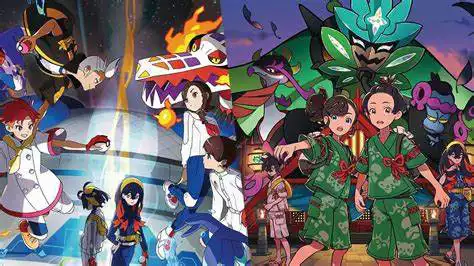Pokemon battles, long a staple of online theatres, may be fundamentally altered by Nintendo's new guidelines. These modifications, which have gone largely unnoticed by the mainstream media, could ostensibly erase Pokemon showdowns from YouTube, where they've amassed a substantial fan base. The concern arises from Nintendo's modification of its content rules governing Internet-streamed gaming sessions, such as Pokemon battles.
This specific gaming niche is not your traditional type of gameplay video, which incorporates unique commentary from the gamer, thus offering creative new material to viewers. Pokemon battles, however, are relatively different. What they have in an exceptional way is the intrinsic value of the game, i.e., the effort a player puts in to devise strategies and evolve their game-play than adding commentary or modifying the game content.
Under previous policies, Nintendo allowed players to share such videos as long as they were accompanied by the broadcaster's skills and 'creative input.' It's a subjective and somewhat vague criterion, and Pokemon gameplay videos, particularly online battles, straddle a thin line here. Many, though not all, battle replays contain no player commentary, but are symbolic of strategic playing that requires expertise.

The new guidelines stipulate that shared content should not merely amount to copying gameplay, even if it is subtle and largely unnoticeable to someone unfamiliar with the game. This has resulted in a widespread debate about whether such gameplay-focused battles would pass Nintendo's litmus test.
Many perceive this move by Nintendo as hostile towards its eSport community. The Pokemon community, in particular, is apprehensive about the new rules, especially since they're a prominent feature on YouTube's eSport channels. There's a fear that if these battles are proven to violate Nintendo's policies – a subject on which they've remained largely silent – the Pokemon showdown could become a relic of the past.
Such a development could prove detrimental, not just to the Pokemon community, but also to Nintendo itself. YouTube gaming channels serve as a free promotional tool for many games, and Pokemon is no different. Thousands, if not millions, of players have been introduced to the Pokemon universe through these channels. The potential eradication of these videos could thereby act as a double-edged sword.
Nintendo arguably has a strong view towards fair use and intellectual property rights. While this is defensible in several aspects, it may seem overbearing in regard to the gaming community. Guidelines surrounding fair use, particularly concerning videos that lean more heavily on gameplay rather than additional dialogue or unique content, evoke a sense of fear among content creators who rely heavily on this output.
Pokemon users, just like players of most other games, prefer the visual appeal online gameplay channels offer. This not only enables them to enjoy the game beyond actually playing it, but also introduces them to tips, tricks, and strategies they can incorporate in their own strategies. Thus, the scope of video games extends far beyond simple entertainment, serving as a knowledge-sharing platform and fostering a sense of community.
Several content creators are wading cautiously to determine whether their content is indeed in violation of these sketchy rules. However, Nintendo's silence on the issue only increases the uncertainty and unease. Legal complexities further compound the anxiety. Copyright law, particularly in relation to the concept of fair use, is complicated and highly subjective.
There is no clear procedure as to how exactly these videos infringe Nintendo's fair usage policy. Coupled with the ambiguity in the actual content regulations themselves, not to mention Nintendo's credibility and resources, content creators face a tightrope walk that could end up in a devastating fall.
The concerns surrounding copyright infringement also extend to live-streaming platforms. Direct streaming of games is increasing in popularity. However, copyright rules have not evolved at the same pace, rendering streamers vulnerable to allegations of copyright infringement. Should this concern apply to some of the most popular Pokemon battle channels, the fallout could be significant.
These ongoing debates and controversies highlight the urgent need for clearer and more comprehensive guidelines. Not only should Nintendo clarify its stance, but other gaming companies might also do well to make sure their policies are transparent and well-understood. Playing to an audience is an entirely legal activity, but ambiguities in gaming company regulations might make it seem otherwise.
It's not just a matter of legality, it's about recognizing the contribution players make through these battle replay videos – albeit indirectly – to a game's success. Sharing these videos promotes the game, demonstrating its mechanisms and complexity, which in turn encourages more consumers to play.
In conclusion, the recent change in Nintendo's content guidelines is proving to be a significant concern for the Pokemon community. The potential restrictions on recording and sharing online gameplay could potentially be detrimental for both the players and Nintendo itself.
Ultimately, the impact of Nintendo's new rules is yet to be seen. Depending on how Nintendo chooses to enforce these rules, the world of Pokemon online battles could be transformed completely or not at all. Only time will tell in this case.
However, if Nintendo's intention was to encourage more creativity and unique content in gameplay videos, there's a chance that they may inadvertently stifle the essence of games like Pokemon, which rely heavily on strategy and skill. To sum up, the future of Pokemon battles on YouTube certainly hangs in the balance.